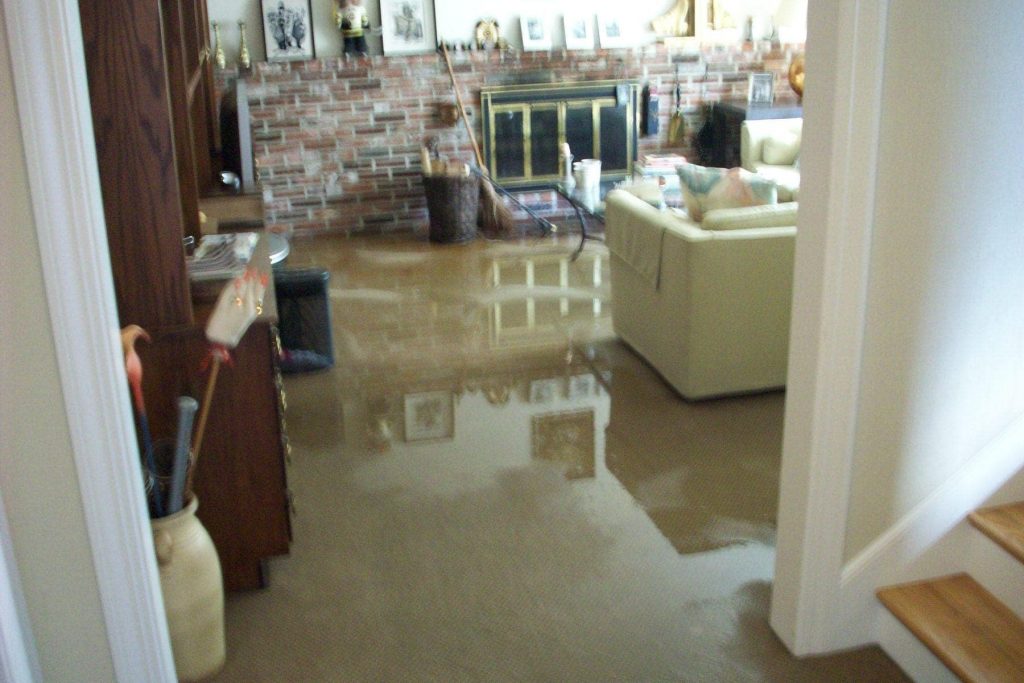Flooding can be a devastating experience for homeowners. It can cause significant damage to your property and personal belongings, and it can be difficult to know where to start in the cleanup process. However, by following a few key steps, you can minimise the damage and get your home back to normal as quickly as possible. In this blog, we will outline what to do when your house floods. Hopefully, you can react wisely with this guideline to save your maximum possessions in a flood situation.

Here Is What To Do When Your House Floods
- Safety First:
The first and most important step is to ensure your safety. If the water is deep enough to cause a safety hazard, do not enter the floodwaters. Wait until it is safe to enter your home and start the cleanup process.
- Turn off Power:
Before entering your home, turn off the power and gas to prevent electrical shock and fire hazards. If the water has risen above electrical outlets, do not attempt to turn off the power. Wait until a professional electrician arrives to turn off the power.
- Call Your Insurance Company:
Call your insurance company as soon as possible to report the flood. Your insurance company will provide you with instructions on what to do next and will likely send an adjuster to assess the damage.
- Document the Damage:
Take photographs and videos of the damage to your property. This documentation will be important for your insurance claim and for future reference.
- Remove Standing Water:
The next step is to remove as much standing water as possible. Use a sump pump, a wet/dry vacuum, or a mop and bucket to remove the water. If the water is contaminated with chemicals, sewage, or other hazardous materials, it is important to take appropriate safety measures, such as wearing gloves and protective clothing.
Begin Drying Out the Space: Once the standing water has been removed, it is important to begin the drying process. Open windows and doors to allow for ventilation, and turn on fans and dehumidifiers to help dry out the space.
- Dispose of Damaged Items:
Any items that have been damaged by the floodwater should be disposed of immediately. This includes furniture, rugs, and other porous items that cannot be cleaned and disinfected.
- Clean and Disinfect:
Clean and disinfect all surfaces in your home that have been affected by floodwater. This will help prevent mould growth and the spread of harmful bacteria.
- If Required, Hire a Professional:
Finally, it is important to hire a professional water damage restoration company to help with the cleanup process. A professional company will have the experience and equipment needed to properly dry out your home, repair any damage, and restore it to its pre-flood condition.
7 Flood Prevention Tips Suggested By Our Specialist
- Check your home’s elevation: Make sure your home is elevated above the 100-year floodplain, which is the area that has a 1% chance of flooding each year. If you live in a low-lying area, consider elevating your home or relocating to a safer area.
- Install check valves: Check valves prevent flood water from flowing back into your home through plumbing systems. Have a professional plumber install check valves in all of your home’s sewer pipes to help prevent backups and flooding.
- Clean gutters and downspouts: Clean gutters and downspouts regularly to ensure they are free of debris and functioning properly. Clogged gutters can cause water to overflow and seep into your home.
- Maintain landscaping: Make sure that the ground slopes away from your home so that water doesn’t pool near your foundation. Consider adding rain gardens or other landscaping features to help absorb water and prevent runoff.
- Store hazardous materials safely: Store hazardous materials, such as chemicals and fuels, in water-resistant containers above the expected flood level. This will help prevent contamination of floodwaters and protect against fire hazards.
- Consider flood insurance: Consider purchasing flood insurance to protect your home and personal property from flood damage. Flood insurance is separate from homeowners insurance and is typically provided by the National Flood Insurance Program.
- Prepare a flood evacuation plan: Make sure you and your family have a plan in place for evacuating your home in the event of a flood. Identify a safe place to go and make sure everyone knows how to get there.
Conclusion: What to Do When Your House Floods?
Dealing with a flooded home can be a stressful and overwhelming experience, but by following these steps, you can minimize the damage and get your home back to normal as quickly as possible. If you need help with water damage restoration, be sure to contact a professional company that has the expertise and equipment to get the job done right.
